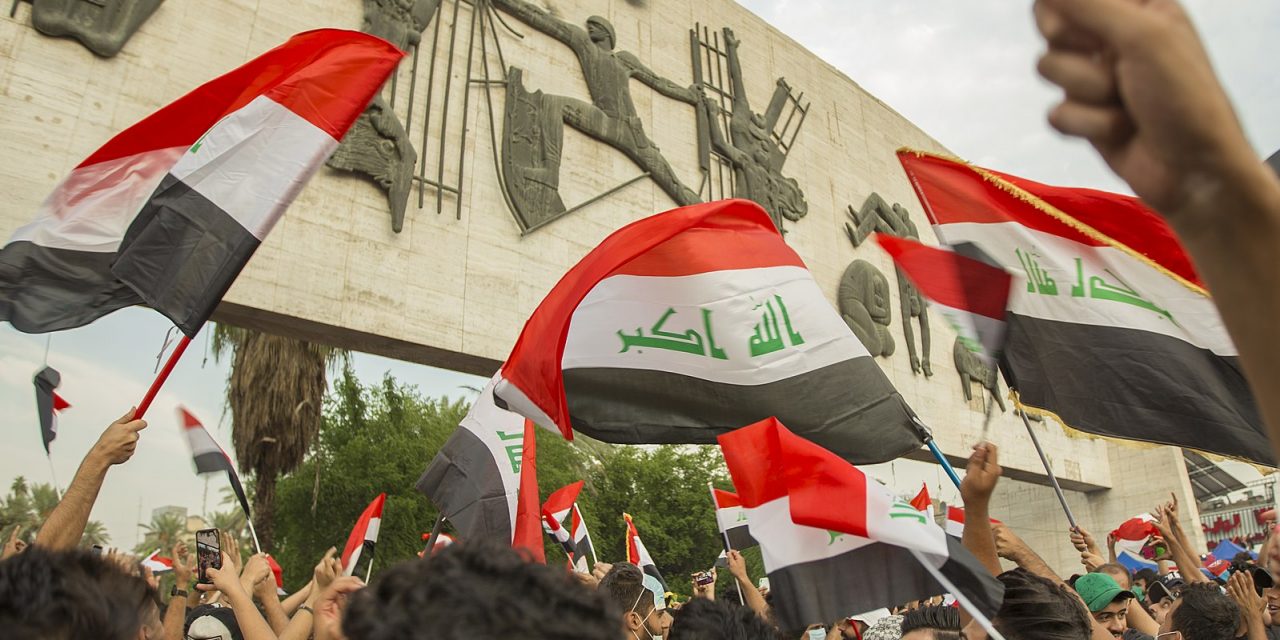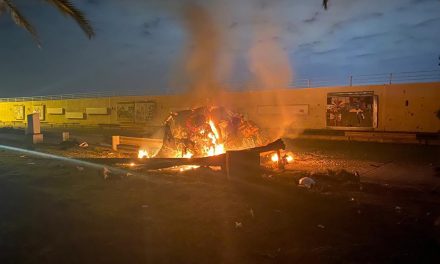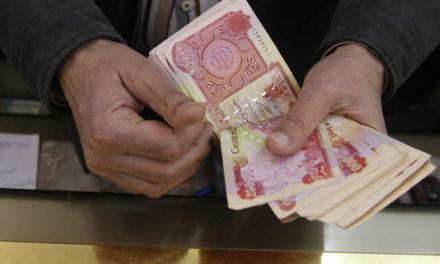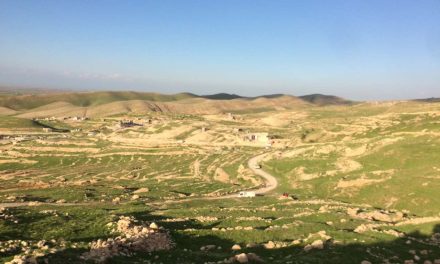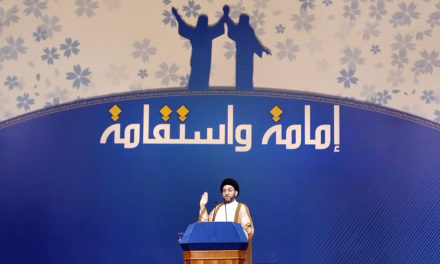(Photo: Mustafa Nader)
Thawra (revolution), is a word full of weight; its meanings transcend common vocabulary driving a collective movement that is often romanticized yet rarely contemplated and understood. Perhaps the best arbitrator to its implications is time. Iraq is no stranger to powerful and weighty words, nor to revolutions. Modern Iraqi history alone records more than six events with such a title; making Iraqis well-acquainted with the concept. Over the past year, this relationship has developed, with many describing the protest movement that began in October 2019 as the start of a new revolution in Iraq — Thawrat Tishreen — a title granted to what was perceived as the gateway to a rebirth of Iraq. Yet away from romanticism, these protests, which demanded basic needs, also saw more than six hundred coffins of protestors. Away from the media, little policy or administrative change has come about — therefore, it is crucial to ponder, how will Thawrat Tishreen stand the test of time?
Firstly, it is important to note that the response to the October protests was the most severe violent crackdown on protests in Iraq since the demise of the Ba’athist dictatorship in 2003. Records by Amnesty International indicate that more than six hundred protestors were killed from October 2019 and into 2020. In addition to the violent deaths, thousands of demonstrators suffered injuries, many of which resulted in permanent disabilities. While the new government of Prime Minister Mustafa Al-Kadhimi adopted a different rhetoric from their predecessors, it has not yet differed from them in action. The government has emphasized its commitment to the victims of the crackdown, referring to them as “martyrs” and promising to entitle their families to 10 million dinars in compensation. This money can hardly compensate for the lives and potential that was lost and for the pain inflicted on the mourning families. Moreover, compensation is unlikely in the near future, given that Iraq has struggled to pay its public sector employees, withholding many salaries for weeks at a time.
What is more, the nature of the crackdown on the protestors and this “compensation” plan has focused on laying blame elsewhere. It has emphasized the failing political powers of the past seventeen years as different elements blamed various “third parties” for the violence. Moreover, the same parties continue to look for opportunities to exploit the protest events for domestic and regional geopolitical ambitions. They opportunistically seized the revolution that was directed against the status quo, with the full force of a social awakening, and in anger towards the political parties which divided Iraq based on their ambitions but who united in corruptly sharing its spoils. New and old, all sides began positioning themselves and their ideologies with the events in October, from banned Ba’athists and individuals looking to reform their image to established powers referring to the chaos as a conspiracy against the interests of their base. The October Protest Movement, with pure roots in Iraq, became embroiled and tugged down to the very system and establishment it sought to overcome.
The storm beginning in October 2019 has been accompanied by little policy or administrative change. For instance, a notable development during the protests was a print newspaper launched by Iraqis known as “Tuk Tuk,” referring to the vehicles that heroically carried injured Iraqis to seek medical aid. The newspaper’s first edition titled “Roadmap to Save Iraq” put in place roadmaps and demands by the protestors, including seeking the immediate resignation of the government of Prime Minister Adil Abd Al-Mahdi and the formation of a transitional government consisting of independent and non-partisan individuals with no prior political experience or political ambitions. In addition, the paper also emphasized needing new election laws, conducting elections under U.N. oversight, reforming the constitution and so on. Unfortunately, few of these demands have been translated into policy.
While Abd Al-Mahdi did step down, no transitional government that fit the criteria was put in place and no justice was brought to the killers of the protestors. Rather, the bickering of familiar actors intensified against the background of discontent that seems to have only brought about a change of seats for the players already involved. Kadhimi, the newly approved prime minister, held the position of director of the Iraqi National Intelligence Service. His approval contradicts the newspaper’s demand that figures have no previous role in government, and it came after months of back and forth between existing political parties and the rejection of two previous candidates put forth by President Barham Salih. Beyond reinstating and promoting General Abdul-Wahab Al-Sa’adi, promises by Prime Minister Kadhimi to release non-violent protestors while bringing those who killed peaceful protestors to justice remain just that. Kadhimi has done little other than paying lip service to reforming the existing system, let alone helping the demands of protestors. Instead, he plays by the rules set out by the political establishment as lawlessness remains rampant, having come to power on the back of protests whose ambitions have been dwarfed and plans sidestepped by those in power.
Iraq has seen many events over the past year, yet little has changed. This October, once again, protestors have taken to the streets to revive the memory of hope brought about last year. However, this time the protests occurred in the background of a global pandemic, an economic crisis, escalating violence against activists, and the same political establishment. Thawrat Tishreen remains a figment of hope for change; the youth face a dilemma between attempting to integrate into the existing system during the next elections or demanding uprooting the system. Without proper organization and mobilization, the movement risks fizzling out of memory as a romantic and tragic Iraqi story, without substantive and lasting political impact.


